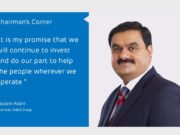When Should You Sell Products and Not Advice?
Should you sell financial products and product-push? Or should you be selling advice?
” Sell Products or Sell Advice “
Maybe you might ask:
- Is your client willing to listen to your advice?
- Why would client listen to your advice when buying a financial product they need would be much simpler?
Learning financial products is not easy, how could learn the benefits of multiple products in a short time? If the solutions are highly recommended, why should clients be signing tons of disclosures and disclaimers?
- Why Clients Struggle with Receiving Wealth Advice
- 10 Steps to Start Advising Clients Every Year
- How Do You Start Advising Clients in Your New Job?
- The Best Products to Start with for New Advisors
We look at situations when you should sell products and not give advice:
No.1 When There is a Clear Need

Too often, wealth management or investment solutions are presented as holistic solutions.
It sounds really great. Unfortunately, there are times when providing advice might backfire.
It can even negatively affect the relationship or the damage the first impression of you. You also gain the label of “trying to be smart” without really knowing who they are or what they are trying to do.
What if your clients are young CEOs or were given a large inheritance by their parents at an early age?
When client has a clear need, there isn’t a need to provide advice. Selling the right products to client is more important.
| Common Needs | Possible Products |
| Need a lump sum for children’s tertiary education in 3 – 10 years time | Endowment or Diversified Unit Trusts |
| Need regular retirement income | Annuity, bonds or Diversified Unit Trusts with Payout |
| Take advantage of country or sector growth | Single Country or Sector Unit Trusts, Exchange-Traded Funds, A few stocks, or relevant Indices, Futures, Options |
| No Time, No Fuss | Unit Trusts, Discretionary Portfolios, Endowments |
| Wants Total Control | Provide Execution Services and Provide Information |
No. 2 When Clients Know What They Want

Not many clients fall into this category of knowing what they want.
However for simple financial products, many affluent and High net worth clients might already be familiar with a few financial products.
Example of Financial Products:
- Deposits
- Stocks
- Bonds (In countries with fully-developed financial system)
- Unit Trust
- Single / Regular Premium Endowments
When clients already know what they want, all you might have to do is just to showcase to them the products your financial institutions have.
Listening to your financial or wealth advice when you might be only 25, 35 or 45 year old when they are already 50, 60 or 70 might just be a sensitive approach to start with.
No. 3 When Clients Assume They Know What They Want

It happens perhaps more frequently: Clients assume they know what they want.
” Clients assume they know what they want “
Being able to determine what clients assume is probably why at age 21, 25 or 30, you could be advising clients who are more experienced, established and wealthier than you.
Not them, but you have the access to collections of knowledge, best practices and financial information.
And because you speak to so many clients and the way they manage their money, you have a much better idea of what clients know, and do not know.
If you want to build relationship with clients, you can’t just about to disagree with what they have done their entire life and implement the holistic wealth advice your financial institution had built up.
To get started, getting them to buy a product they need gives you the continuous opportunity to keep in touch with them, and gradually share what you and your financial institution believes in.
No. 4 When Clients Don’t Know What They Want

Perhaps the worst clients to have: They don’t know what they want.
” Perhaps the worst clients to have: They don’t know what they want. “
New advisors or inexperienced advisors may have the impression that clients who don’t know what they want are the best clients to have. Though your advice is more valuable, it also means clients may not know what they are doing.
For such clients, you might have to “teach” them basic financial terms such as interest rate, the interest rate differences, and how it can affect future returns. You will also have to introduce to them what stocks, bonds and foreign exchanges are.
Worst, they rely solely on your advice. When things do not go according to plan or they simply have a change of plan, it falls on your shoulder.
It is sometimes hard to advise such clients.
And perhaps the better initial solution? Sell a product they need. And if they start complaining about a $10,000 or $100,000 financial product, you might just stay away from managing the rest of their money.
What do you think? Do you think you should sell products or sell advice? Which is more effective to get started?
- Why Clients Struggle with Receiving Wealth Advice
- 10 Steps to Start Advising Clients Every Year
- How Do You Start Advising Clients in Your New Job?
- The Best Products to Start with for New Advisors
Sign Up / Register
Caproasia Users
- Manage $20 million to $3 billion of assets
- Invest $3 million to $300 million
- Advise institutions, billionaires, UHNWs & HNWs
Caproasia Platforms | 11,000 Investors & Advisors
- Caproasia.com
- Caproasia Access
- Caproasia Events
- The Financial Centre | Find Services
- Membership
- Family Office Circle
- Professional Investor Circle
- Investor Relations Network
Monthly Roundtable & Networking
Family Office Programs
The 2025 Investment Day
- March - Hong Kong
- March - Singapore
- July - Hong Kong
- July - Singapore
- Sept- Hong Kong
- Sept - Singapore
- Oct- Hong Kong
- Nov - Singapore
- Visit: The Investment Day | Register: Click here
Caproasia Summits
- The Institutional Investor Summit
- The Investment / Alternatives Summit
- The Private Wealth Summit
- The Family Office Summit
- The CEO & Entrepreneur Summit
- The Capital Markets Summit
- The ESG / Sustainable Investment Summit









































